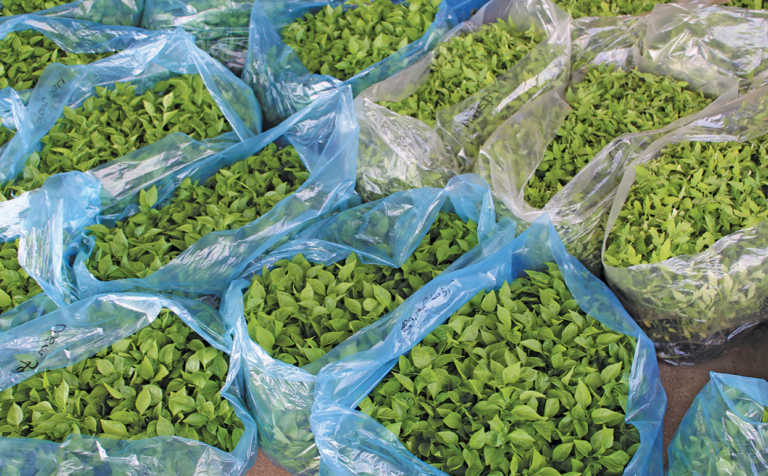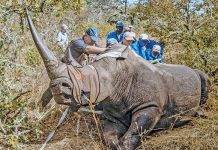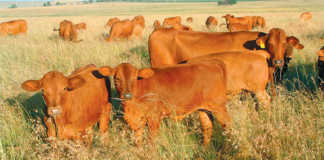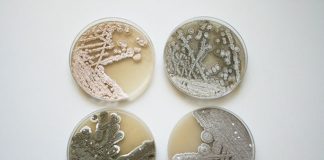
Photo: Lindi Botha
Being able to alter direction in line with market demand is key to success in business. Ezigro Seedlings in White River, Mpumalanga, has seen many shifts in recent years as farmers switch crops to remain profitable.
By staying abreast of industry trends and utilising the versatility and efficiency of tunnel farming, the company has been able to service this ever-changing market with quality seedlings.
The nursery was bought in 2002 as a going concern with 3ha under tunnels. Today it has expanded to 12ha on multiple sites in Mpumalanga and one nursery in the Western Cape. Ezigro supplies a wide range of seedlings, from vegetables to macadamia, eucalyptus and pine trees, as well as clonal trees for the avocado and forestry industries.
Vegetable production peaks in winter, and forestry peaks in summer, ensuring year-round production.
Anthony Baird, CEO of Ezigro Seedlings, explains that while the business focused initially on vegetables, huge demand for forestry seedlings in Tzaneen, Limpopo, prompted the company to expand and cater for this.
Today, Ezigro produces 36 million forestry seedlings and 12 million clones a year, which together make up 50% of the business.
Vegetables comprise a further 20%, and macadamia and avocado trees 30%. This translates to 80 million vegetable plants, 180 000 macadamia seedlings, 80 000 avocado seedlings and 60 000 avocado clones a year.
Growth in macadamias
Baird says that many forestry plantations are being converted to macadamias, prompting the company to gradually increase its macadamia component.
“We added macadamias to our offering in 2016 and avocados in 2017. Many of our forestry growers started asking for macadamia trees, so it was a natural progression.”
He notes, however, that the demand for forestry seedlings has not decreased as yet.
“We’re bracing ourselves for a dip. Private tree growers are seeing they can make more money from macadamias and avos than from forestry, so there’s a gradual switch. But on the Highveld you can’t grow anything else, so the demand for forestry seedlings will remain consistent there.
“Mozambique and Zambia have become big players in forestry and macadamias; many of our trees are going there.”
Baird says the flexibility of tunnel farming enables Ezigro to switch easily from one crop to another, or add additional capacity when demand grows for a particular seedling.
“No structural changes are needed if we decide to change our crops, so keeping up with shifts in demand is not a problem. However, staying informed of changes in the market requires constant communication with farmers to find out what’s happening and what they’re planning so that we’re in a position to supply seedlings when they need them. If there’s a sudden drop in demand for one kind of seedling, it doesn’t have a negative effect, due to the diversification of our business. We’d be in trouble if we grew only one specific crop.”
Improving water-use efficiency
The nursery is on the canal system in White River and uses additional boreholes to service the nursery. While the water is of a high quality, Ezigro nevertheless sterilises it in a chlorinator.
One of the challenges facing the business is the need to improve water-use efficiency.
“Water will become scarce and we have to constantly look at ways to save and recycle water,” stresses Baird.
The business has implemented a number of changes in recent years to reduce water use.
“We’ve changed to finer nozzles in our irrigation system. These are pressure-controlled and produce a fine mist spray. This results in better water absorption in the plants and less waste. There are no wide overlaps where water goes over the trays, so the irrigation is more concentrated.”
The tunnels have two irrigation lines: one for clean water, the other for fertigation. On average, the plants receive water at a rate of 2,5ℓ/tray/day.
Baird and his team have also changed the growth medium to improve water-use efficiency. Previously, pine bark was used, but the switch to a mixture of coco peat and coir has resulted in a 15% water saving due to this medium’s superior water retention.
The nursery uses approximately 60m³ of coir and peat a week during peak season. The coir is bought from a local company that sources it from Lithuania, while the coco peat is purchased from Mozambique.
Although the peat is three times the price of the pine bark, Baird says the added expense is worth it, as it results in better quality seedlings.
“Pine bark is quite a raw product and has variable nutrients and pH levels. It’s inconsistent, whereas coir and peat are consistent. But we have to ensure that the coco peat’s sodium level is not too high, which is often the case due to the salty air in Mozambique. It’s possible to flush it out, but generally we send it back if the salt level is too high,” he says.
The tunnels are covered with 200-micron plastic to allow light in and keep the interiors warm and humid. The climate in White River is ideal for tunnel production as the minimum and maximum temperatures do not reach extremes.
“One needs a consistent temperature to produce a quality seedling,” explains Baird. “The climate created in the tunnels is ideal and no additional heating or cooling is necessary. If the temperature exceeds 30°C, we open up the sides to allow airflow. When the temperature drops, we lower the sides again to contain the heat. We strive for 80% humidity.”
Competitive advantages
Although Ezigro faces a fair amount of competition in the area, Baird says that maintaining relationships with clients and always having stock available have enabled the business to go from strength to strength.
Part of the company’s success is due to the efficiency of its delivery service: this is provided by a fleet of 10 trucks, each capable of transporting 120 000 forestry or 230 000 vegetable seedlings.
Other key elements are expert advice and seedling quality.
“We’re strategically placed around the forestry areas and have a good management team with a lot of experience that can advise clients on what to plant, and how and where to do so. We’re also known for producing quality plants, so we get repeat business,” says Baird.
The company’s vegetable seedling enterprise operates differently to its forestry side.
“We sell mostly to walk-in clients who buy plants and then resell, especially around Komatipoort. Most of these seedlings are sold by street vendors for backyard gardens, either for home use or hawkers.
“This is a big part of our business, but it presents its own challenges as the number of seedlings we plant is a guessing game. We have to ensure there’s always stock, which often means throwing away unsold seedlings that have exceeded the right size.”
Management
The tunnels require minimal maintenance, with only an occasional replacement after a severe storm. Pest management is crucial, and workers scout the tunnels daily for infestations. Baird says that pest management is a balancing act as they don’t want to harm beneficial insects with excessive spraying.
“We’re moving towards more biological control. Chemical use is becoming more strictly regulated and many chemicals can’t be used anymore. This is pushing us in a more environmentally friendly direction.”
He recalls an outbreak of the eucalyptus gall wasp (Leptocybe invasa), which nearly wiped out the eucalyptus seedling industry.
“This prompted us to go the clonal route. Although there’s a biological control for the wasp now, we realised that clonal trees were more profitable.”
Email Anthony Baird at [email protected].












